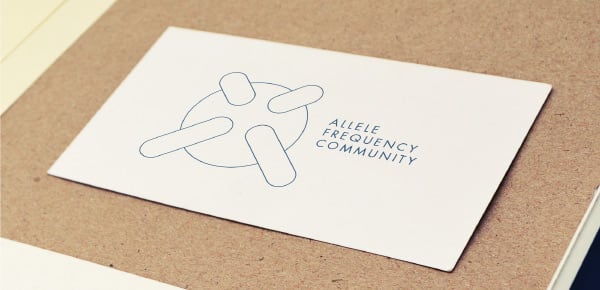


















Imagine Human Genome Interpretation minus the false positives. Allele Frequency Community is a freely accessible “opt-in” community resource designed to facilitate sharing of anonymized, pooled allele frequency statistics among laboratories for the benefit of patients and biomedical research.
Joining the community is free. Once you join, your NGS samples can be richly annotated with allele frequency information from the entire Community. Non-personally identifiable statistics from community members’ samples are used to expand the diversity of the database over time.
More informations about Allele Frequency Community is available here www.allelefreq.org
At AGBT 2015 in Florida, we'll be giving a presentation on Allele Frequency Community at the Software Demo Session. The presentation title is Genomic Crowdsourcing: Allele Frequency Community Provides Expansive, Ethnically Diverse, Freely Available Community Resource for Allele Frequency Annotation.
Time and place: February 26 Thursday 5:15 pm – 7:15 pm, Marco Island Hilton, Florida
Title: Genomic Crowdsourcing: Allele Frequency Community Provides Expansive, Ethnically Diverse, Freely Available Community Resource for Allele Frequency Annotation
Douglas Bassett1, G Eley2, R Felciano1, R Forsberg1, L Furmanski1, G Glusman3, D Goldstein4, M Hegde5, P Hieter6, A Joecker1, T Kaminski7, A Krämer1, S Letovsky7, T Love1, B Macy1, A Muthiah1, K Patel1, N Pearson8, V Rajaraman1, H Rehm9, D Richards1, F Schacherer1, E Schadt10, S Scott1, J Shendure11, D Shiffman1, A Subramanian1, P van der Spek12, JG Vockley2, R Yip1
Abstract Text
A key challenge in genome interpretation is the lack of an extensive, high quality, ethnically-diverse collection of human genomes as a reference set. A prospective disease-causing variant that appears to be “rare” based on publicly available sequence may in fact be a polymorphism in an ethnic population under-represented in public databases. Resources such as the Exome Variant Server and the 1000 Genomes Project have been immensely valuable to the community, and Kaviar combines such datasets into integrated allele frequencies, but public databases have not been funded to provide broad and deep ethnic representation. QIAGEN’s Variant Analysis™ genome interpretation solution (www.ingenuity.com/variants) has been used to interpret 300,000 ethnically diverse human samples. However, these NGS datasets are private and most are never publicly released. Labs often collect their own private allele frequency libraries, but infrastructure and incentives have historically not existed for integrating these resources into a freely-available community asset. The Allele Frequency Community has been formed to address this interpretation need. Founding members have pooled extensive human exome- and genome-wide variant call datasets in a secure, anonymized, pooled fashion to create the largest integrated, freely-accessible, hosted community database of allele frequencies ever available. To enable this community resource to grow over time, users have the opportunity to opt-in to join the Allele Frequency Community and benefit from the extensive database, agreeing in return to allow their sequences to contribute to the database. Only anonymous, pooled allele frequencies are provided, protecting patient privacy. QIAGEN Bioinformatics agreed to host the content and make it available free of charge via its HIPAA and Safe Harbor compliant genome interpretation ecosystem, which includes QIAGEN’s Variant Analysis, Cancer Research Workbench (www.clcbio.com/products/) and Clinical Decision Support (www.ingenuity.com/ngs-clinical-beta) offerings. Analyses made possible by this large diverse dataset will be presented, and ethnic diversity of the resource will be reviewed.
For more info, please write to marketingbiox@qiagen.com